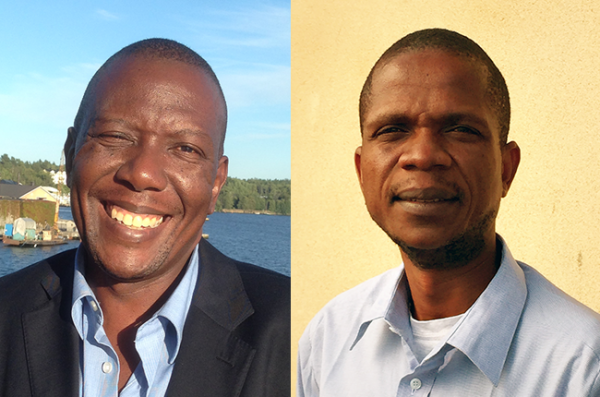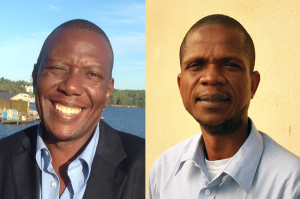Report by Marie Ende, Union to Union who met with ITF affiliates ATGWU and TGWU in Sweden when they attended the ‘Looking back – looking forward: labour and nature through the lens of life histories and prospective sustainability scenarios‘ conference in Sweden. Click here for the original Swedish version of the article.
Climate negotiations will soon begin in Paris, but the transport union in Uganda have already adopted their first climate policy, with tools to change workplaces as well as society as a whole.
Climate change affects the average temperature, sea levels and will jeopardise livelihoods for hundreds of millions of people. The poorest countries in the world, like Uganda and Malawi for example, contribute the least to this problem but will be the ones worst affected if nothing is done. The transport industry is responsible for 25 per cent of the total emissions of carbon dioxide in the world. It is against this background that the Amalgamated Transport and General Workers’ Union (ATGWU) in Uganda have produced and adopted a climate policy.
“Trade unions must be seen as modern and relevant organisations that deal with the big questions of today, so a greener workplace is a strategic priority when it comes to union regeneration” says John Mark Mwanika, ATGWU’s national coordinator for the climate project in Uganda.
The policy, which has been formally adopted, shows the will and vision of the transport unions at the same time providing guidance for shop stewards to carry on this work in individual work places and negotiate in their collective agreements.
“It is about promoting sustainable developments and encouraging a greener economy”, says John Mark Mwanika.
The overall goal of the policy is to ensure that all workplaces implement suitable measures against climate change. John Mark Mwanika believes that it is becoming more evident that the only way to effectively deal with this challenge is to get a consensus with all parties involved, and the work has paid off.
“We are getting people’s attention because of what we are doing. Other trade union organisations and companies are wondering how we do it” says John.
Another acknowledgement of John Mark Mwanika’s work on climate change is that he will also be will also be Uganda’s official delegate to conference during the climate change negotiations, COP 21 in Paris.
Martin Kapombeza, from the transport union, TGWU in Malawi, who also is part of the climate project, explains how he has trained ‘green stewards’ in his country and that they are working on getting climate clauses included in their collective agreements.
“We have in the past had annexes to our agreements about equality and HIV/AIDS, but they can easily be ignored by employers. It is better if we can get a clause in an agreement, so that the employer has to implement this“, says Martin Kapombeza.
One example of improvements, Martin tells us, is that instead of everybody having their own printer they now all share one. Other changes have been that water used for cleaning in the bus workshop is filtered to stop the oil polluting the environment. In addition, a day has been set aside for employees to discuss the environment.
“I will put my heart and soul into educating all active union members”, says Martin Kapomebeza. You have to be passionate to have the strength to do this. We cannot change everything ourselves but we have to work together.
About the climate change and transport workers project
Climate change and transport workers is a global project which is supported by the global union ITF, Swedish union Seko and Union to Union. The project raises awareness about the causes and impact of climate change and transport, how to increase the involvement of trade unions in climate change discussions and negotiations and to develop union policy and strategy on climate change . One of the reasons for success is that the ITF has built a global network of young union leaders on climate justice who amongst other things train green stewards in the workplaces.
Click here for more information about the project.


Leave a Reply